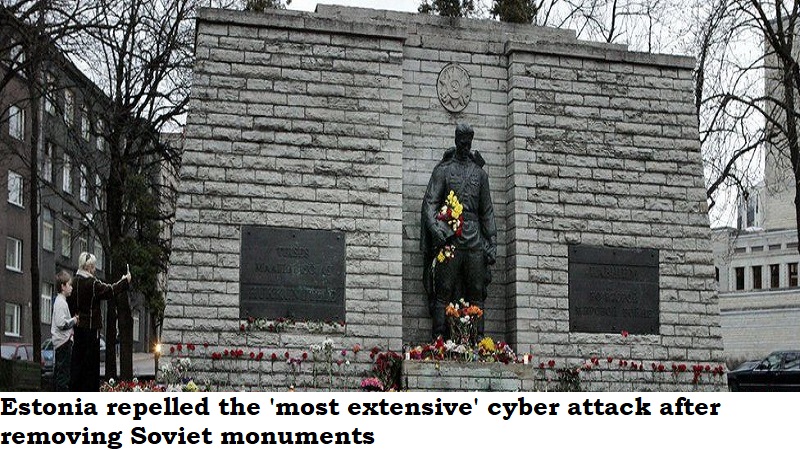
Estonia declared on Thursday that it has stopped ‘the most widespread cyber attacks since 2007′ shortly after demolishing Soviet monuments in a region with a sizable Russian ethnic population.
More than 200 public and private institutions in Estonia, including an online citizen identity system, had their access to the network banned, according to the Russian hacker collective Killnet, which claimed responsibility for the attack on Wednesday. However, a government representative for Estonia claimed on Thursday that the attack didn’t have much of an overall effect.
According to a tweet from Estonia’s Ministry of Economic Affairs and Communications’ undersecretary for digital transformation, Luukas Ilves, ‘yesterday, Estonia was the target of the most significant cyberattacks it has experienced since 2007.’
According to Killnet, which took credit for a similar attack in Lithuania in June, a Soviet Tu-34 tank was removed from exhibition on Tuesday in the town of Narva and put in a museum. In a DDoS attack, hackers try to overwhelm a network with unusually high levels of data traffic in an effort to stop it when it can no longer handle the amount of data demanded.
Estonia made an effort to improve cyber security after suffering substantial cyberattacks in 2007, which it blamed on Russians furious about its demolition of a Soviet-era statue. Ethnic Russians rioted for two nights in Tallinn when the Red Army monument was dismantled.
The Estonian government on Tuesday ordered the immediate removal of all public Soviet memorials in the town of Narva, which has a large Russian-speaking population. Additionally, they claimed that Russia was aiming to further polarise Estonian society by using the past.

Post Your Comments